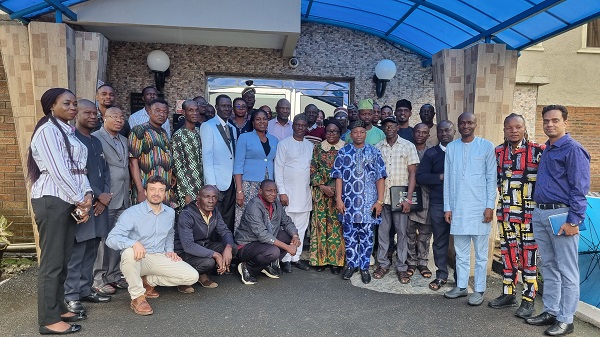The Standards Organisation of Nigeria (SON) has announced that reviewing Nigeria’s minimum energy performance standards (MEPS) for air conditioners (ACs) will significantly improve Nigerians’ living standards and drive industrialisation.
Assistant director and senior group head of the electrical electronic department at SON, Engr. Ismaila Lawal made this assertion during a technical workshop for AC manufacturers, importers, assembly companies, installers and other stakeholders. The event was organised by SON in collaboration with the Energy Commission of Nigeria (ECN) and the United Nations Environment Programme (UNEP), with financial support from the Clean Cooling Collaborative (CCC) in Lagos, Nigeria.
Lawal stated that revising the existing standards to align with international benchmarks would enhance energy efficiency and promote climate-friendly air conditioners in Nigeria. “We review standards when there is a government policy change or advancement in technology. The old air conditioners consume a lot of energy and electricity and for the sake of energy management, we need to update these standards to ensure Nigeria is not left behind and not turned into a dumping ground,” he explained.
He highlighted the importance of aligning Nigeria’s standards with international ones, stating, “We have participated at the international level where these standards are being reviewed, so we need to domesticate them in Nigeria. This ensures that whether the air conditioners are locally manufactured or imported, they meet the international standard.”
Discussing the implementation process of the revised MEPS for ACs, Lawal mentioned that the technical committee had recently met in Abuja. The reviewed standards will be submitted to the SON Director-General, who will then present them to the SON Governing Council for approval. “It is crucial to ensure manufacturers, importers, and all stakeholders comply with these standards once approved. This includes protecting the environment by regulating the refrigerants used in ACs,” he added.
Deputy director of the energy transition and linkages unit at ECN, Samaila Gambo Zaku explained that the review of AC MEPS for Nigeria was driven by the impact of climate change and the role of energy in exacerbating it. “ACs are significant energy consumers. Using efficient ones will reduce energy consumption and help save the environment,” he stated. The workshop aimed to create awareness among manufacturers, producers, importers and assembly companies about the revised standards.
National secretary of the Nigerian Association of Refrigeration and Air Conditioning Practitioners (NARAP), Wasiu Kadiri Abiodun expressed optimism about the impact of the revised AC MEPS. He emphasized that proper implementation would benefit all citizens by reducing the prevalence of substandard materials in the market. “The market is rife with substandard materials. If these standards are implemented well, it will be immensely beneficial,” he said.
On the affordability of energy-efficient air conditioners, Abiodun pointed out that quality products, though slightly more expensive, offer better value for money. “Quality products are more durable and provide better value over time compared to cheaper, lower-quality options,” he asserted.
Vice-president of the Nigeria Working Committee of the International Electrical Technical Committee (standard), Engr. Gufrah Shuaib explained that Nigerians would save energy and gain economically by embracing energy-efficient air conditioners. “Nigerians import about 1 million ACs annually, each consuming around 100,600 watts. Reducing this consumption will free up energy for other sectors,” she explained.
In his opening remarks at the workshop, SON director-general, Dr. Ifeanyi Okeke emphasised the dynamic nature of standards, noting the need for periodic updates to improve efficiency and safety. Represented by deputy director of lab services Mr. Adeyinka Adetoyi, he commended ECN, UNEP and CCC for driving the MEPS review process and called for increased awareness to ensure broad compliance with the new standards.


